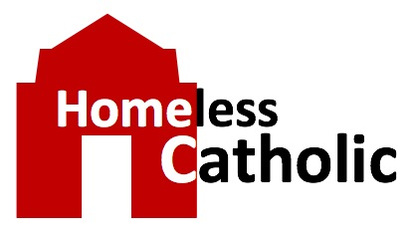How Shall I Make a Return?
“I love the LORD, because he has heard my voice and my supplications. Because he inclined his ear to me, therefore I will call on him as long as I live. The LORD preserves the simple; when I was brought low, he saved me. Return, O my soul, to your rest; for the LORD has dealt bountifully with you.”
Image by NoName_13
How Shall I Make a Return?
By Steve Hall
Saturday of the Third Week of Easter
Acts 9:31-42
John 6:60-69
A person would be hard-pressed to find another day where both readings are so marvelous. In a way, you might call it a day with readings of beginnings. In John’s Gospel, we are introduced to Jesus’ origins (“What if you were to see the Son of Man ascending to where he was before?”) and to the Eucharist (“I am the bread of life”). Both are critical issues for those of us who believe.
In the passage from Acts, we are presented with the growing, vibrant birth of the Church. Exploding from the twelve and the disciples who remained, “The Church . . . was at peace.” In the name of Jesus — the name Paul will say is above every other name — the lame walk, and the dead arise. And this is but the beginning.
But neither of these caught my attention today. There is another reading, often overlooked and seldom as apropos as the one given us today.
“How shall I make a return to the Lord for all the good he has done for me?”
The refrain is taken from the middle of the Psalm. It is a reflection upon what has gone before. It echoes the troubles we have all felt at one time or another in our lives and the response of God when we turn to him.
“I love the LORD, because he has heard my voice and my supplications. Because he inclined his ear to me, therefore I will call on him as long as I live. The LORD preserves the simple; when I was brought low, he saved me. Return, O my soul, to your rest; for the LORD has dealt bountifully with you. For you have delivered my soul from death, my eyes from tears, my feet from stumbling.” (Psalms 116:1-2, 6-8)
In this morning’s readings, we are reminded of the Lord’s care and how he inclined his ear to us and brought forth the Church and the Eucharist to sustain us when we are brought low. We are also reminded that he became man so that he could “deliver my soul from death.” Is it a surprise that we ask: “How shall I make a return to the Lord for all the good he has done for me?”
How indeed?
The question has been persistent in demanding my attention for a long time. Considering the chasm between Creator and created, between Holiness and sinfulness, how is it anything but insanity to seek to make a return? The Psalmist does not directly give an answer. Yet he provides a clue in the very next verse; and it’s the most natural thing in the world. “The cup of salvation I will take up, and I will call upon the name of the LORD.” How should I interpret that? Pair it with the question of Jesus: “Are you able to drink the chalice that I am to drink?" (Matthew 20:22) and the meaning begins to emerge.
“The cup of salvation” is “The chalice that I am to drink.”
The chalice that Jesus was called to drink was the Father’s plan of salvation. It was a bitter cup for Jesus. It involved suffering before glory and death before resurrection. It is a bitter cup for us, too; for the return we make to the Lord is our acceptance, even our embrace, of “The cup of salvation,” the cup that is “The chalice that I am to drink.”

